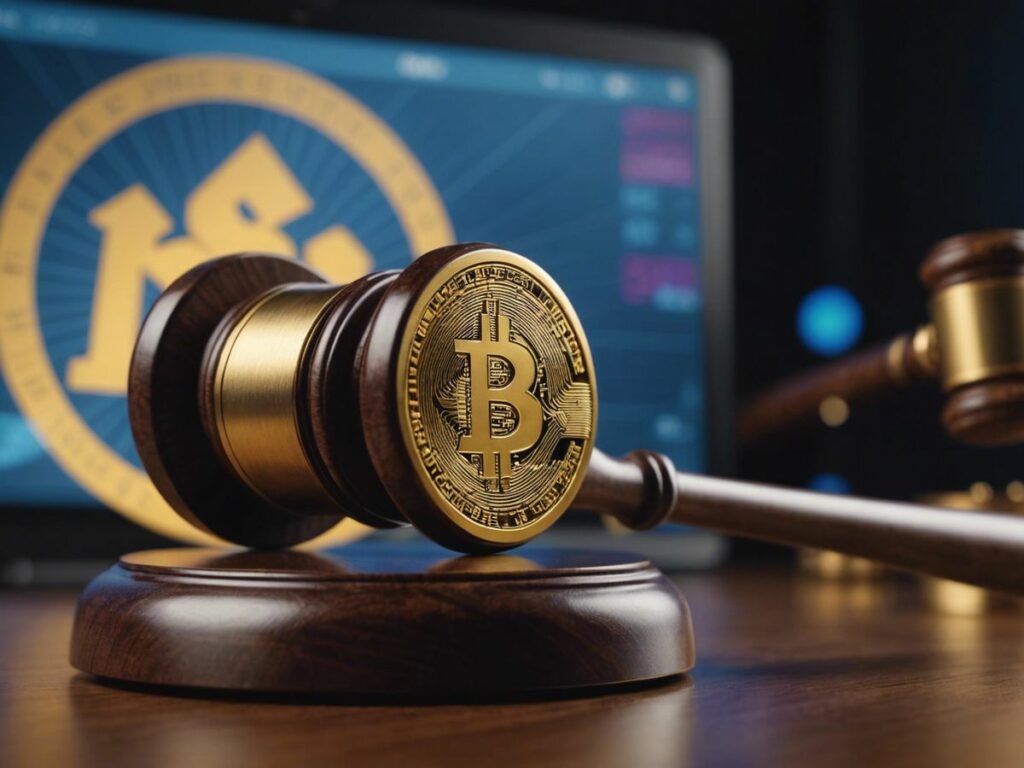The U.S. Securities and Exchange Commission (SEC) has filed lawsuits against the world’s largest crypto exchanges, Binance, Coinbase, and Kraken, marking a significant shift in the regulatory landscape for the cryptocurrency industry. These lawsuits allege various regulatory violations, including the unregistered sale of securities and misuse of customer funds.
Key Takeaways
- The SEC has filed lawsuits against Binance, Coinbase, and Kraken.
- Allegations include unregistered sale of securities and misuse of customer funds.
- The lawsuits have significant implications for the future of the crypto industry.
SEC vs. Binance: Accusations and Consequences
On June 5, 2023, the SEC filed a lawsuit against Binance, accusing the exchange of several regulatory violations:
- Running an unregistered exchange and allowing U.S. investors to trade cryptocurrencies.
- Selling Binance-owned cryptos BNB and BUSD stablecoin.
- Offering staking and profit-generating programs like BNB Vault and Simple Earn.
- Misrepresenting investor protection controls on the Binance.US platform.
- Using customer funds for its own interests.
- Engaging in wash trading to inflate trading volumes.
The SEC’s lawsuit against Binance is expected to extend into 2024. Binance has agreed to pay a $4.3 billion fine to settle charges from the U.S. Department of Justice (DoJ), Commodity Futures Trading Commission (CFTC), and Financial Crimes Enforcement Network (FinCEN). As part of the settlement, Binance’s founder Changpeng Zhao stepped down as CEO, and Richard Teng was appointed as the new CEO.
SEC vs. Kraken: Similar Allegations
On November 20, 2023, the SEC filed a complaint against Kraken, the world’s third-largest crypto exchange by trade volume. The charges against Kraken are similar to those against Binance and Coinbase:
- Operating as an unregistered securities exchange, broker, dealer, and clearing agency.
- Commingling customer funds for operating expenses.
Kraken has denied the charges and intends to defend itself in court. This is not the first time Kraken has faced legal action from the SEC; in February 2023, the exchange agreed to cease its crypto staking services and pay $30 million in fines.
SEC vs. Coinbase: Compliance Issues
A day after filing the lawsuit against Binance, the SEC charged Coinbase with operating as an unregistered securities exchange, broker, and clearing agency. The SEC also took issue with Coinbase’s staking-as-a-service program and its marketing campaigns that positioned the exchange as compliant with regulations.
Coinbase has responded by stating that it had agreed to register some portion of its business with the SEC but faced a lack of cooperation from the regulator. The exchange has also asked the SEC to specifically identify which cryptocurrencies on its platform are considered securities, but the SEC declined to do so.
Market Reactions and Future Implications
Despite the lawsuits, the cryptocurrency market has shown resilience. Top cryptocurrencies like Bitcoin (BTC) and Ether (ETH) rebounded quickly from initial sell-offs. However, cryptocurrencies identified as securities by the SEC, such as BNB, ADA, SOL, MATIC, and ATOM, experienced selling pressure.
The lawsuits have sparked debates about the future of the crypto industry. Some experts believe that U.S. crypto companies may move offshore to avoid stringent regulations. Others argue that the industry needs clear and modern regulatory frameworks to ensure innovation and investor protection.
Conclusion: A Turning Point for Crypto Regulation
The SEC’s lawsuits against Binance, Coinbase, and Kraken signify a critical juncture for the cryptocurrency industry. As these cases unfold, they will likely set new precedents and shape future legislation. The broader crypto market awaits the outcomes, anticipating far-reaching effects on its operations and regulatory environment.
With better clarity on regulations, crypto exchanges are expected to emerge stronger, safer, and more acceptable than ever.
Sources
- SEC vs Binance, Coinbase, Kraken Lawsuits Usher Tough New Era, Techopedia.
- Binance, Coinbase head to court; the SEC labels 67 crypto-securities, Cointelegraph.
- Full List of Cryptos Named Securities in SEC Lawsuits, BeInCrypto.
- SEC lawsuits against Binance and Coinbase unify the crypto industry, Cointelegraph.
